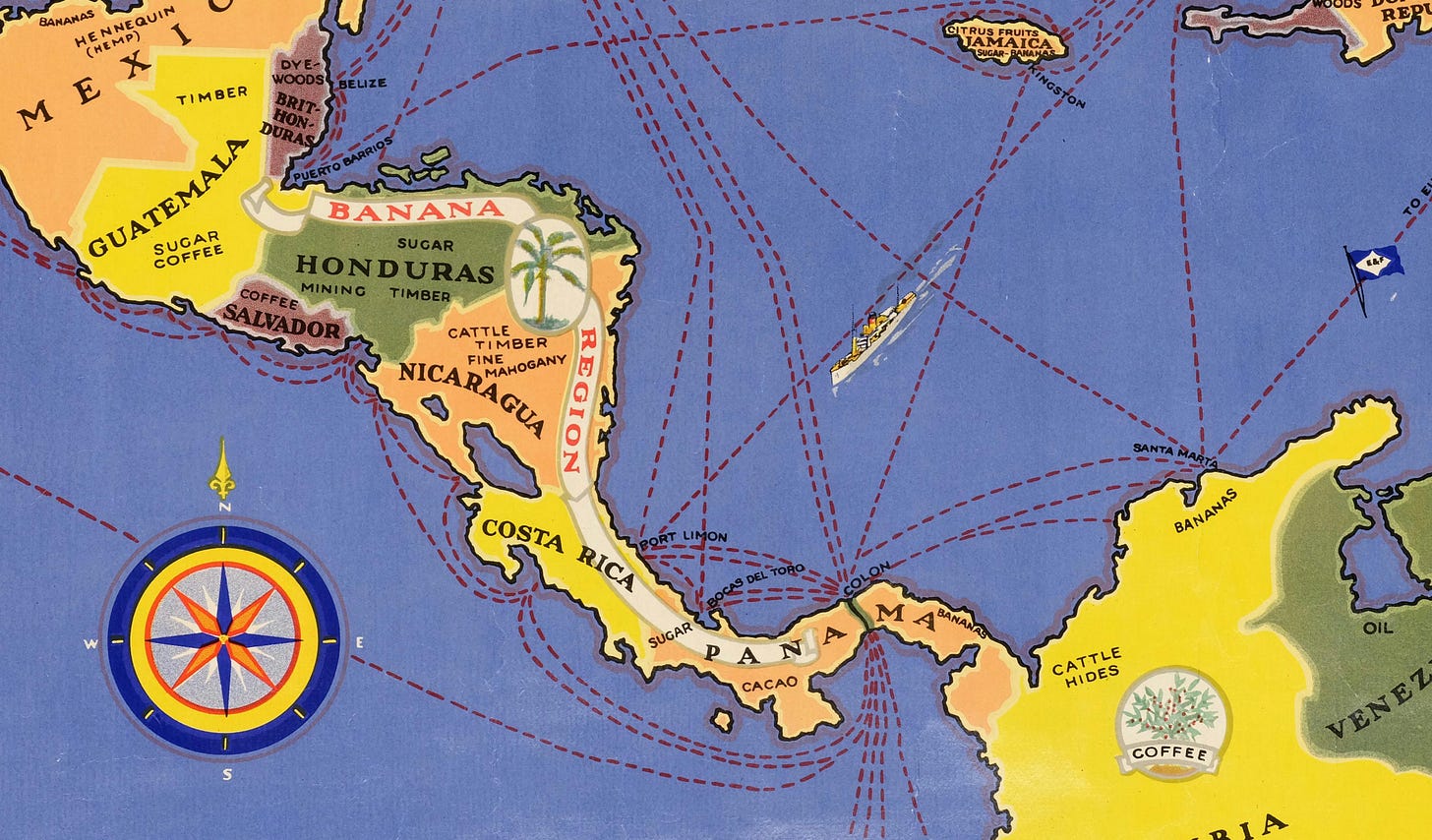Week signals: Slipping on a banana republic
Plus: watch points for Ukraine, Russia, Venezuela, the UK, Germany, and the Philippines.

Hello,
In this week’s edition of Week Signals:
IN REVIEW. The network effect of moral outrage, staying upright in a slippery world, three forms of corruption, and seven lessons for clean corporate living.
UP AHEAD. Choices for Kyiv and Caracas, budgets for London and Berlin, and a thriller in Manila.
And don’t forget to connect with me on LinkedIn.
Week Signals is the Saturday note for clients of Geopolitical Strategy, also available to GD Professional subscribers on Geopolitical Dispatch.
The Week in Review: Notes on a scandal(s)
The week began with Donald Trump agreeing not to veto the Epstein Files Transparency Act, allowing it to pass swiftly in Congress. It ended with Vladimir Putin pre-emptively agreeing to a Ukraine peace proposal that he had cooked up with the US. It now requires Volodymyr Zelensky’s consent. It also ended with Washington warning airlines of a “potentially hazardous situation” over Venezuela.
As my colleague Damien Bruckard wrote on Sunday, complex systems, like geopolitics, can mean hidden connections to seemingly disparate events. The key events of this week were certainly disparate, but their connections not so hidden.
The Epstein saga – even without the potentiality of a geopolitical dimension (we disagree with the New York Times’ David Brooks that this is merely a Democrat-flavoured #Pizzagate) – has become so central in domestic discourse that only something as big as peace in Ukraine or war in Venezuela would likely drown it out, hence why the possibility of either (or both) shouldn’t be ruled-out.
But more than this, the three events are also linked as examples of how government corruption remains such a major geopolitical theme, 100 years since the “Banana Republics” of Central America became a byword for how self-dealing plutocrats can capture weak states.
In the US, it’s the late Jeffrey Epstein, a paedophile connector of the global elite, who at least dabbled in statecraft, according to leaked documents. In Ukraine, it’s the Energoatom scandal, which has so weakened Zelensky that he may now sign away the territories he has sacrificed so much for (and never mind that this is a blip of what goes on in Russia). And in Venezuela, it’s Nicolas Maduro’s alleged leadership of the semi-fictitious Cartel de los Soles, a former CIA front whose designation as a narco-terrorist organisation could provide the legal justification for a land attack, if not invasion, that otherwise makes little sense outside the strange logic of politics in 2025.
Secondary connections to the scandal theme are also present.
Ending the Ukraine war on the current 28 points would allow the White House to reframe it again around the Hunter-Biden-Burisma conspiracy of 2019 (as opposed to the Russiagate conspiracy of 2016). It also helps that the prosecutor of Russiagate was the father of the prosecutor of Epsteingate.
Starting a war in Venezuela, a smuggling route for cocaine but not fentanyl, would be narratively simpler from the perspective of pointing out Joe Biden’s border failures (or his Burisma-tainted son’s crack habit) than the endless, unglamorous work that would be needed to disentangle China’s chemical and advanced pharmaceutical ingredients industry from the backyard labs that turn these into synthetic drugs.
This kind of thing is, sadly, not new. Domestic scandals have augured foreign wars before. Whether the bombing of Belgrade was really a way for Bill Clinton to make it up to Hillary after Monica may never truly be known, but the case of Argentina’s junta invading the Falklands to cover up for a human rights scandal is well-documented. Serbia’s escalation against Austro-Hungary was, in part, an attempt by Prime Minister Nikola Pašić to cover up a corruption scandal. The term “diversionary war” is an established concept in the study of international relations.
For businesses and investors, the question should not be so much is this kind of thing possible (in the 21st century or otherwise), but how likely it is to shape the global operating environment. The rules-based order for international trade is on the rocks. Is the rules-based order for international norms (i.e., don’t invade other countries; don’t steal from your citizens) also kaput?
Scholars have attempted to analyse whether corruption, as we’ll call it, is becoming more or less common. On a perception basis, for much of the world at least, it’s becoming more common. And even as new technology like electronic payments makes it harder for lower officials to take bribes, new technology like artificial intelligence makes it easier for more senior officials and regimes to manipulate sentiment and avoid detection.
As the world banana-ises, what can and should firms and investors who want to stay clean do to avoid slipping up? Assuming you don’t wish to partake, how do you survive and thrive in a rotten world?


